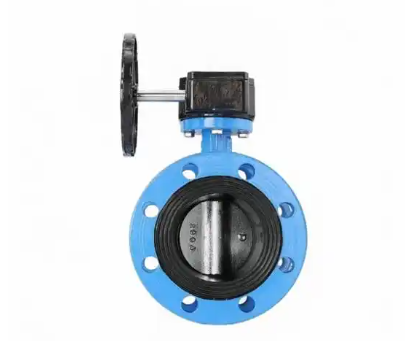The soft-sealing butterfly valve, also known as a resilient-seated butterfly valve, is one of the most widely used flow control devices in modern industrial and civil pipeline systems.
Its simple structure, reliable sealing performance, and cost-effectiveness make it ideal for various applications involving liquids, gases, and even light slurries.

Unlike metal-seated butterfly valves, soft-sealing types use rubber or elastomeric seats (such as EPDM, NBR, or PTFE) to achieve bubble-tight shutoff and excellent corrosion resistance.
Below, we explore the main industries and applications where soft-sealing butterfly valves are commonly used.
Table of Contents
Toggle1. Water Treatment Industry
Soft-sealing butterfly valves are essential in the water supply and wastewater treatment sector due to their tight shutoff and corrosion-resistant design.
They are used in:
Municipal water supply and distribution systems
Sewage treatment plants
Desalination facilities
Irrigation systems
In these environments, the valve’s rubber seat prevents leakage and ensures reliable isolation of clean or contaminated water, making it a preferred choice for low- and medium-pressure pipelines.
2. Chemical Industry
In the chemical and petrochemical industries, soft-sealing butterfly valves are used for acidic, alkaline, and corrosive fluid pipelines.
Their lining materials (such as PTFE or EPDM) offer excellent resistance to chemicals, while their compact design allows easy installation even in tight spaces.
Common applications include:
Chemical solution transport
Gas and vapor control
Acid and alkali pipelines
Cooling and circulation systems
3. Food and Beverage Industry
Hygienic soft-sealing butterfly valves are widely used in the food and beverage sector, where cleanliness and reliability are critical.
They are often installed in:
Beverage and juice processing lines
Breweries
Dairy and water bottling plants
Sugar and syrup production
Valves with food-grade EPDM or silicone seats ensure that the medium does not become contaminated, maintaining product purity and complying with sanitary standards such as FDA and ISO.
4. Pharmaceutical Industry
In the pharmaceutical and biopharmaceutical sectors, soft-sealing butterfly valves are applied in various liquid and gas handling systems.
Their smooth internal surfaces and cleanability make them ideal for:
Purified water (PW) and WFI systems
Air and steam pipelines
Drug production and transfer systems
When combined with stainless steel bodies and sanitary connections, these valves provide sterile, contamination-free performance in high-purity applications.
5. Power Industry
Soft-sealing butterfly valves also play a vital role in power generation plants, including thermal, nuclear, and hydroelectric facilities.
They are typically used in:
Cooling water systems
Condenser and auxiliary pipelines
Circulation and feedwater control
Their high flow capacity and corrosion resistance make them suitable for handling large-diameter, low-pressure water circuits in power plants.
6. Oil and Gas Industry
In oil and gas processing, soft-sealing butterfly valves are used for non-abrasive and low-temperature services, such as:
Oil and gas transportation pipelines
Refinery utility systems
Compressed air and nitrogen service
Storage tank isolation
For these operations, soft-sealing valves offer a reliable shutoff solution with fast operation and low maintenance requirements.
7. Mining and Metallurgy Industry
In the mining and metallurgical sectors, soft-sealing butterfly valves are used for liquid and gas control during extraction and refining processes.
Applications include:
Ore slurry distribution
Cooling water systems
Process gas control
Dust collection and ventilation
The valve’s abrasion-resistant seat materials and tight sealing performance ensure stable operation even under challenging conditions.
Conclusion
The soft-sealing butterfly valve has become an indispensable component in fluid control systems across industries.
Its advantages — such as lightweight construction, low torque operation, and excellent sealing performance — make it ideal for a wide range of water, chemical, food, pharmaceutical, energy, and industrial applications.
